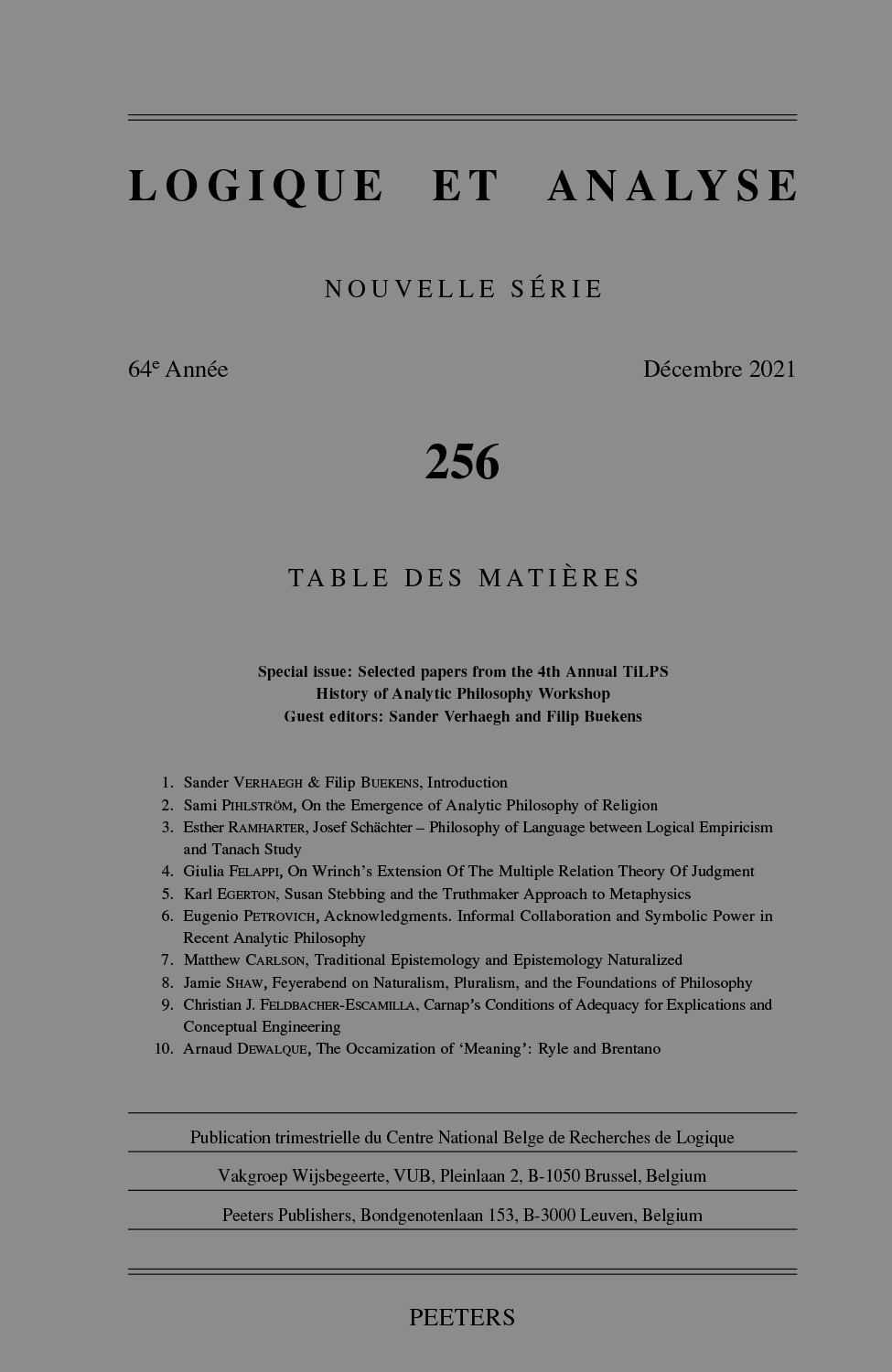 previous article in this issue previous article in this issue | next article in this issue  |

Preview first page |
Document Details : Title: Deciding and Time Subtitle: Refusing Devilish Offers Author(s): ZAHIDI, Karim Journal: Logique et Analyse Volume: 225 Date: 2014 Pages: 45-57 DOI: 10.2143/LEA.225.0.3011355 Abstract : In Gracely’s decision theoretic puzzle, the Devil’s Offer, a subject is offered to take part in a lottery in which she stands to win eternal bliss or eternal torment. Her chances of winning the lottery increase as time elapses. Expected utility maximization seems to lead to the paradoxical situation in which the subject indefinitely postpones the lottery, resulting in the least desirable outcome. However, as various authors have pointed out with respect to decision problems similar to the Devil’s Offer, the reasoning that leads to the paradoxical conclusion is not valid. In particular, distinguishing between a synchronic and diachronic version of decision problems in which the number of choice options is infinite, allows for a finegrained analysis of the requirements of rational decision making. The aim of this paper is twofold. I will show that Arntzenius et al.’s (2004) analysis of problems that are structurally similar to Gracely’s decision problem can be adapted to show that the latter can be handled within Bayesian decision theory. Furthermore, I will discuss a variation on the diachronic version of the Devil’s Offer, in which the subject is unaware of the fact that she is confronted with infinitely many choices. This modified version seems to be a genuine case in which the principle of utility maximization leads to a paradoxical result. However, I will show that this paradox is only apparent and that the problem can also be resolved within a broadly Bayesian conception of rationality. |
 |


